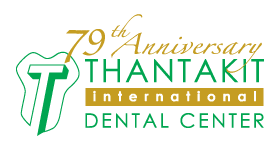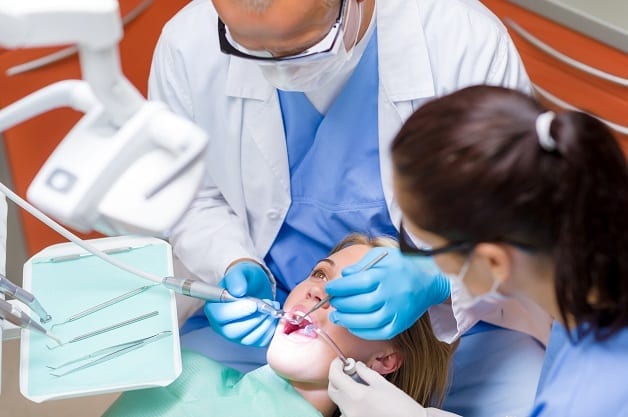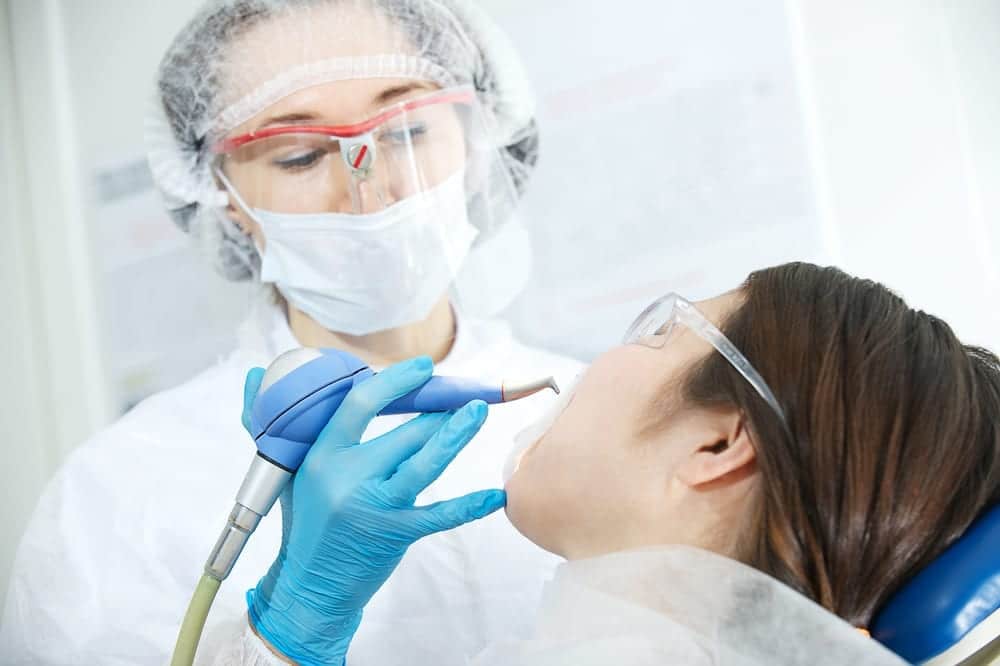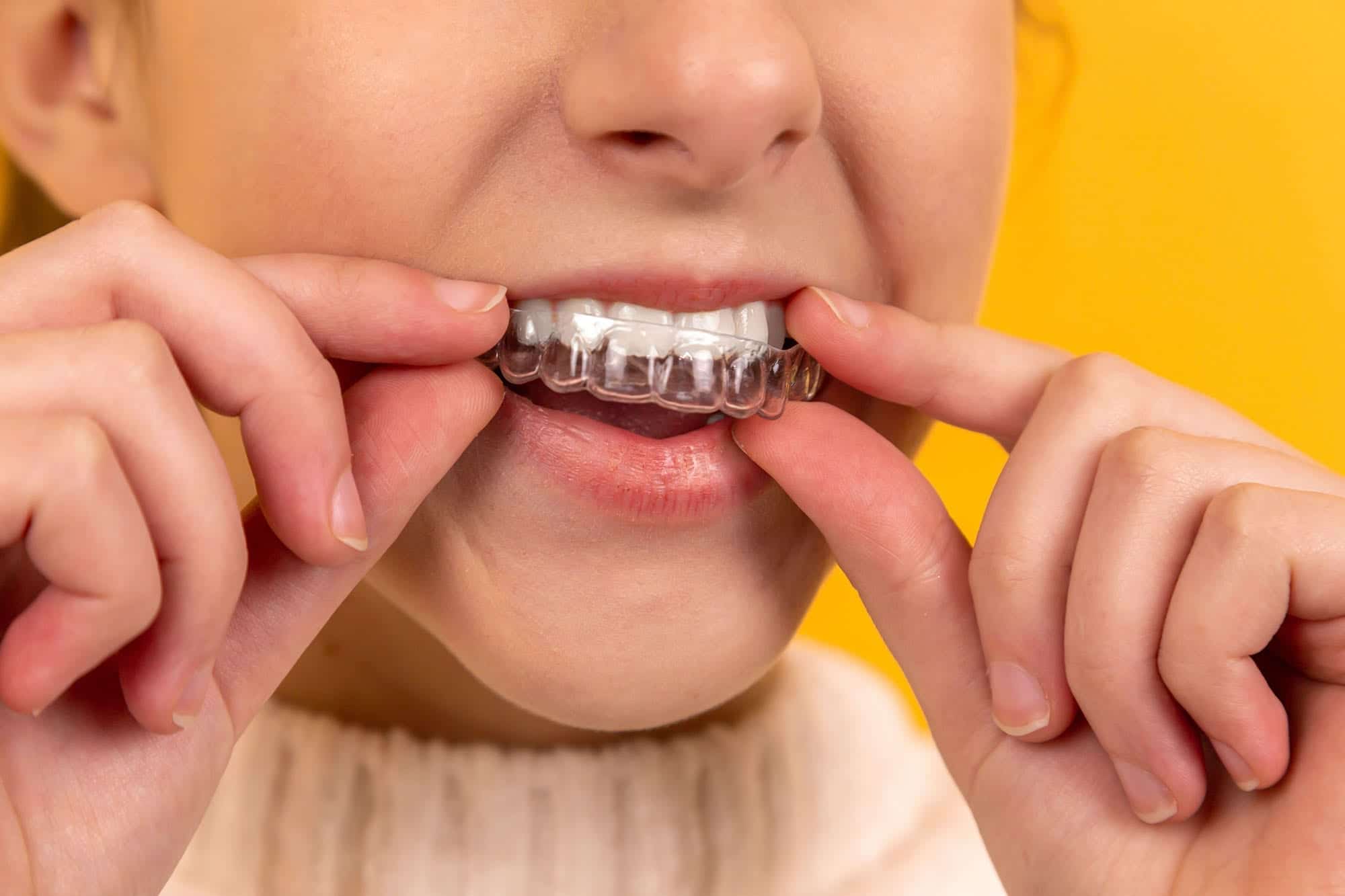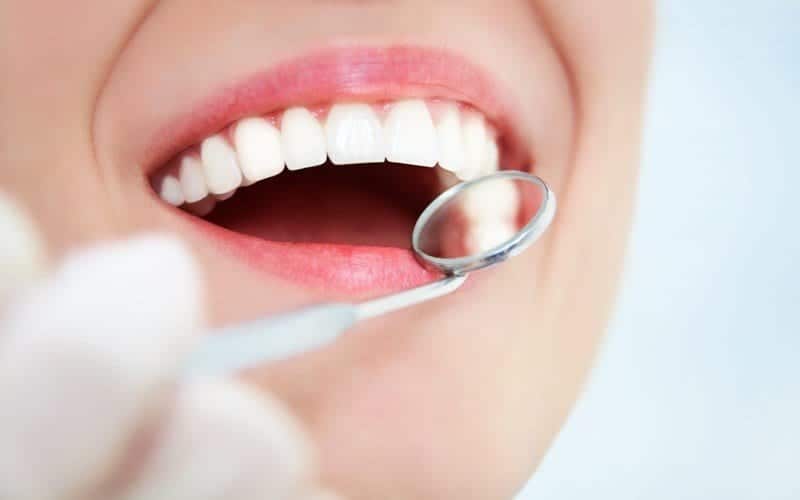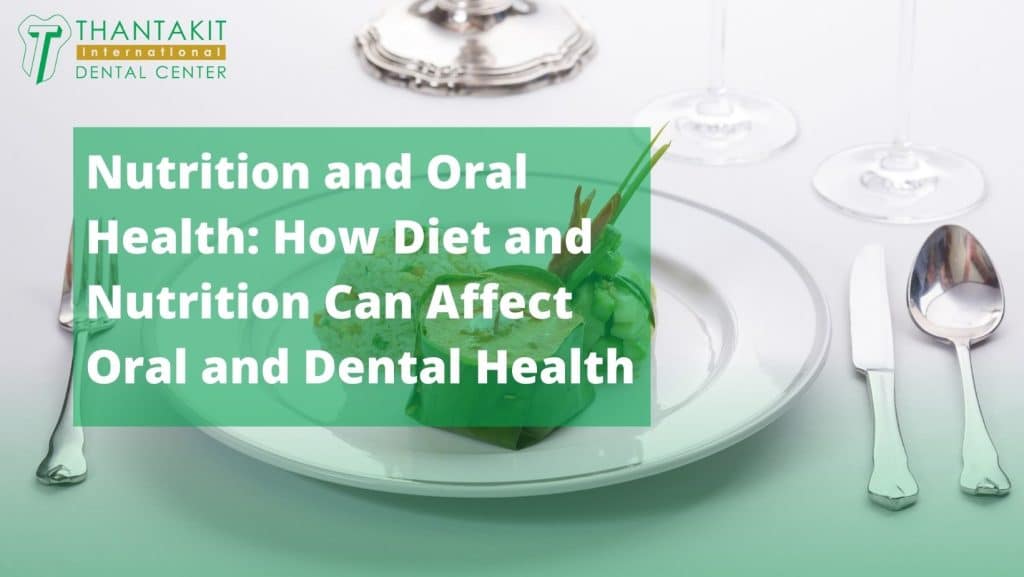Nutrition and Oral Health: A discussion on how diet and nutrition can affect oral health, including which foods are good for teeth and which ones to avoid.
Here’s what you need to know about nutrition and oral health. They’re directly related to each other. If you have poor nutrition, you can end up with various oral maladies.
In contrast, good nutrition along with oral hygiene maintenance can lead to a balanced, thriving microbiome or collection of good bacteria inside your body.
You want good bacteria to abound inside your mouth to avoid enamel degradation and gingivitis. Having bad bacteria is when your mouth is full of sugars, starch, and germs that form plaque and tartar.
Page Contents
Signs of Health Include Resistance Against Oral Diseases
Good nutrition ensures good oral health. In turn, your mouth will become resistant to diseases like dental caries (cavities) and enamel mineral erosion that make the outer shell of your teeth more brittle and prone to breakage.
According to the famous adage, you are what you eat. Don’t separate physical health from oral health because they’re very much intertwined with one another. They indicate how poor or well your health is.
How do you know if your mouth is healthy? You should take note of the following signs and indicators of good oral health.
- No bleeding in the gums or mouth.
- Good or neutral breath (no halitosis).
- Intact and strong teeth with no cavities.
- No sign of aches and pains in the gums or teeth.
- No excessive gum tenderness or teeth sensitivity.
- An absence of abscesses, discoloration, sores, and the like.
Oral health depends on the same elements as overall bodily health, which includes routine maintenance, a healthy non-sedentary lifestyle (with regular exercise), and good food (not junk or fast food).
Good food (or lack thereof) influences the progression and development of oral diseases and conditions such as enamel mineral erosion, gingivitis, periodontal disease, and dental caries.
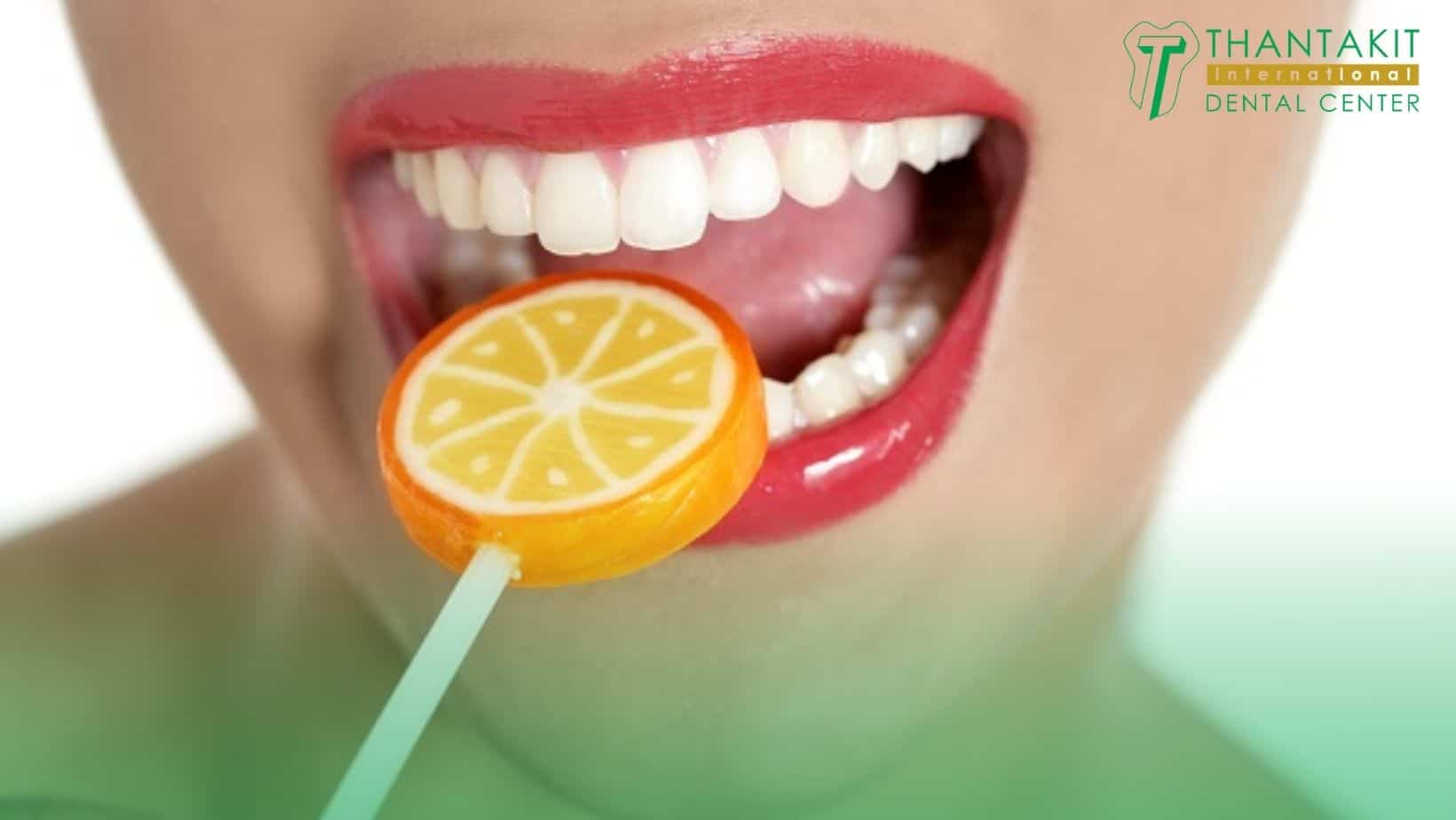
How Diet Impacts Your Nutrition and Oral Health
Nutrition involves getting micronutrients and macronutrients into your body through the right diet and being aware of what food you consume. When you combine this with oral hygiene, this ensures healthy teeth, gums, and mouth. To wit:
-
Poor Oral Health Affects Your Self-Esteem: There’s an impact on self-esteem when you suffer from tooth loss due to dental disease.
-
Sugar Consumption: Excessive sugar consumption and lack of a dental cleaning regimen can result in dental degradation, from cavities to tooth loss.
-
Oral Disease Causes Difficulty in Eating: Your health and nutrition are also affected by dental or oral disease because it makes it more difficult to eat.
-
Common Oral Diseases: The common oral diseases you need to watch out for are enamel or dental erosion, periodontal or gingival diseases, and dental caries.
-
Malnutrition Affects Child Development: Your development and maturation from childhood to adulthood can also be affected by disease-induced malnutrition.
-
Oral Health and Aging: Older people may have problems with healthy food intake due to extensive tooth loss due to aging and bad oral hygiene habits. This could then lead to an increased risk of chronic diseases and impaired nutrition.
The impact of diet and nutrition on oral health is undeniable. Food is necessary for sustaining life and ensuring its good condition. Indeed, nutrition and oral health have a two-way relationship.
How the Wrong Foods Can Damage Your Teeth
You should eat fewer sugary snacks and more nutritious foods to save your mouth from potential harm and your teeth from plaque and tartar.
Poor food choices can lead to deficiency in nutrition according to decades of studies by dental experts. There’s a direct correlation between bad food and bad oral health or dental impairment that isn’t just coincidental.
To be more specific, your mouth’s harmful bacteria resistance is outright affected by its consumption of all the wrong foods when all is said and done.
Neglecting to watch out for your diet can lead to oral disease development. In particular, eating foods high in acid, starch, sugar, and carbohydrates can weaken the enamel of your teeth, thus leading to dental decay.
If your nutrition is inadequate, it can affect your oral health, leading to issues such as:
- Dental caries
- Infectious diseases
- Periodontal diseases
- Diseases of the oral-mucosa type
You might end up with suboptimal nutrition if your oral health itself is already compromised, thus your food choices can become limited too. In turn, this can lead to chronic systemic diseases as well.
Health maintenance of your body requires daily nourishment from food full of vitamins, minerals, proteins, and carbohydrates.
Many interrelated complex factors link general health, oral health, nutritional status, and dietary practices together. The simplified version of it all is that it’s a bidirectional or even symbiotic association between nutrition and oral health.
Recognize then treat nutrition and oral health issues as top priorities to improve your quality of life and health.

Tooth Decay versus Tooth Erosion
How is tooth decay and diet related? According to studies, there’s a link between dental erosion and continuing consumption of high-sugar and/or acidic foods (to no one’s surprise).
You should also know the difference between tooth erosion and tooth decay to figure out how different foods react to your teeth. They’re similar diseases with different causes.
-
Tooth Decay: Tooth decay, also known as cavities or dental caries, happens when your enamel deteriorates because your mouth is full of plaque or biofilm formed by destructive bacteria that feed on your mouth’s high sugar content.
-
Tooth Erosion: Tooth erosion is also known as demineralization. It is enamel corrosion originating from intake of foods and drinks filled with acidic content. It’s similar to decay because plaque also results in acid waste products.
Consuming food with high sugar and acidic content can destroy your teeth over time, to the point of exposing the underlying dentin layer right below the enamel.
The practical thing to do to maintain your dental health is to either brush your teeth more to ensure plaque formation is prevented or cut down on your sugary food intake. This prevents cavities and caries.
Dental and Oral Diseases are Mostly Preventable
You can prevent most oral diseases by watching your diet and daily oral hygiene maintenance. However, they remain one of the most common non-communicable disorders affecting all humans throughout their lives.
-
Lifestyle Changes: The occurrence of oral disease depends on your food and diet choices. There must be a balance between food intake and oral health to ensure you won’t lose all your teeth when you’re older.
-
Treating Existing Diseases: The status and development of your oral diseases also depends on nutrition and diet. To keep your gingivitis or periodontitis from worsening, you need to watch what you eat.
-
The Consequences of Poor Oral Health: Your ability to eat can be compromised by poor oral health. At the very least, you’ll have to invest in dentures to continue eating properly. You should also strive to maintain a good ratio of nutrients in your body by regularly consuming a nutritious and balanced diet.
-
Good Bacteria versus Bad Bacteria: Not all bacteria are bad for you. Excessive germs from plaque and tartar can destroy your teeth, but probiotics can prove beneficial in maintaining the integrity of your pearly whites.
-
Oral Health Affects Overall Health: How healthy your mouth is depending on your nutrition and likewise, your nutrition also depends on the healthiness of your mouth from the inside and outside.

In Regard to Diet and Oral Disease
One other proof of the connection between nutrition and oral health is how malnutrition and gum disease are also connected in a bidirectional sense.
The less healthy your mouth is from poor diet and nutrition, the likelier it’ll develop oral disease. In turn, oral disease can compromise the state of your diet by limiting what you can eat.
-
Plaque: As discussed above, plaque happens whenever there’s an excess of sugar and starch in your diet. Bacteria create this biofilm filled with leftover food particles that stick to your teeth. They then eat the food and produce acid waste products that destroy your teeth’s enamel.
-
Caries: Dental caries or cavities are a direct consequence of plaque. It’s when holes form on enamel that has gone through demineralization. You can get them fixed by tooth filling, inlays/onlays, or outright placement of a dental crown.
-
Calculus: Not to be confused with the math subject, calculus or tartar is when plaque gets calcified or uses calcium to harden itself and make it difficult to remove from your teeth. It causes pathogenic microbes to wreak havoc on your gums and cause periodontitis.
-
Gingivitis: Gingivitis is a common complication of unaddressed plaque formation. This gum disease results in bleeding gums, pain when flossing, and inflammation from all the plaque buildup and bacterial infection.
-
Periodontal Diseases: They are so rampant in the world that they affect 90 percent of the population. Therefore, to avoid having your gingivitis graduate into periodontitis and other periodontal diseases, you should be careful of what you eat.
-
Periodontitis: Periodontitis is a specific periodontal disease involving the inflammation of periodontal ligaments or soft tissues, resulting in alveolar bone loss, loose teeth, tooth loss, and periodontal pocketing. It’s often caused by calcified plaque.
-
Scurvy: Like in the case of sailors and pirates, scurvy happens when your body lacks Vitamin C. When you have scurvy, you could end up losing teeth and becoming gummy because it causes a host of acid-producing bacteria to propagate on your gum line.
Your quality of life is undoubtedly affected by poor oral health on the gingival and periodontal levels. Studies show that the connection between periodontitis and systemic ailments like lung diseases, diabetes, and cardiovascular diseases is quite real.
To keep your body safe, you should start with taking care of your mouth. Brush regularly and avoid over-consumption of food that could ultimately ruin your oral health.
Which Foods Should You Specifically Avoid
Now that we’ve established the link between nutrition and oral health, let’s talk about which foods you should specifically avoid. Several food and beverage types can harm your mouth, teeth, and gums due to their low pH value or sheer acidity.
They can also become doubly devastating or harmful if they’re also high in sugar content, whether it’s sucrose or fructose. In short, watch out for the following.
-
Candy
-
Vinegar
-
Pickled foods
-
Apple cider vinegar
-
Alcohol
-
Red wine
-
Fruit juices
-
Citrus-based drinks made from:
-
Oranges
-
Grapefruit
-
Lemon or limes
-
Soft drinks, particularly tart or sour ones containing:
-
Malic acid
-
Citric acid
-
Phosphoric acid
When consuming these food items, cancel out their acidity by also eating other foods with higher pH in tandem with them. Also, don’t forget to brush your teeth twice a day, floss, and gargle mouthwash from time to time.
This limits the amount of germs, plaque, and tartar that could form around your teeth. The food particles are also washed out and anything sticky is brushed away.
Also, beware of high-carbohydrate junk food that contains loads of starches or sugars. Some of them include the following.
-
Cereals filled with sweeteners.
-
Popcorn kernel husks that can get stuck between gums and teeth.
-
Crusty breads like French bread can get stuck in your teeth or damage your gums with their toughness.
-
Potato chips that can get stuck to the teeth or tear apart your gum tissue with their sharp ridges or edges.
-
Chewing gum or jawbreakers with sweeteners that could grind your teeth’s enamel down the harder you chew.
You should observe holistic oral wellness such that your diet ensures the health of your mouth, which also ensures that you keep consuming only the healthiest of food and drink.
Poor oral health can be avoided by paying attention to what you eat. Encourage positive oral hygiene habits in yourself and your children early on. The secret to good dental and oral health starts with proper nutrition and ends with regular hygiene.

Nutrients You Need for Good Dental and Oral Health
You should also fill your plate with food enriched with vitamins, minerals, and fatty acids to ensure proper nutrition and oral health across the board. The following vitamins that your mouth needs the most include the following.
-
Vitamin C
-
Vitamin D
-
Vitamin E
-
Vitamin A
-
Vitamin K2
-
B vitamins, including Folate and B12
Proper nutrition and oral health require the following essential minerals as well. Consumption and absorption of the nutrients below can ensure that your mouth remains healthy and disease-free.
-
Zinc
-
Iron
-
Calcium
-
Magnesium
-
Phosphorus
The Best Foods for Your Dental and Oral Health
You need to eat food that’s packed with vitamins and minerals and promote continuous saliva flow since this helps flush down acid and bad bacteria. This also helps prevent tooth decay and a host of other ailments.
The best foods for your mouth as well as your nutrition and oral health include the following items.
-
Cheese
-
Whole grains
-
Kale and spinach
-
Beans, peas, and various legumes
-
Fresh, fiber-packed fruits and vegetables
-
Sugar-free chewing gum (don’t over-chew)
Additionally, some studies with current (limited) evidence suggest a link between oral cancer risk reduction and eating fruit and vegetables.
What about Dental and Oral Care Financial Aid?
The upkeep of your oral health is also dependent on consistent checkups. If it’s difficult purchasing out-of-pocket dental care services for your once-to-twice-a-ear dental center visits, you can avail yourself of insurance premiums or discounts from your local dentists.
It’s also possible to get sponsorships or assistance programs from dental schools and public health clinics, particularly if you’re a senior citizen of retirement age. If that’s not enough to cover your oral and dental maintenance needs, then avail yourself of dental tours in Thailand through a top-rated and trusted provider, like the Thantakit Dental Center.
Thantakit International Dental Center is Thailand’s longest established dental center. Situated in Bangkok, our clinic is renowned across the world as a destination for world-class dentistry, with most of our patients flying to us from Australia.
Please contact us today and get a FREE dental consultation.
